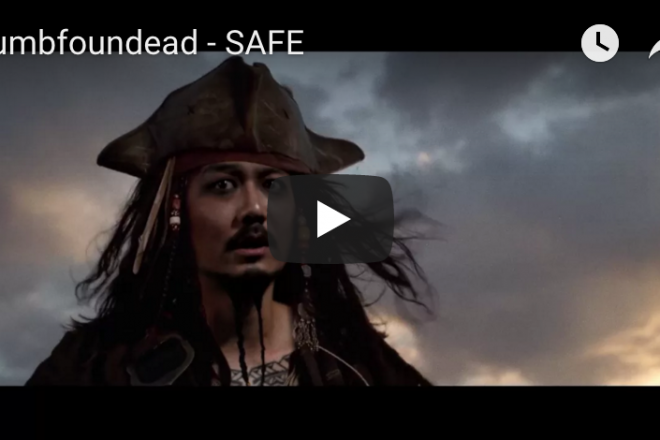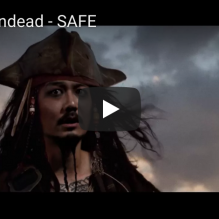Home is Safe
I found this music video while searching the web not too long ago. When I clicked on it, I didn’t know what or who to expect. But after watching it, I felt something inside me shift. Replaying it several times so I could catch the lyrics and soak in the genius of the production, I felt a cocktail of emotions, but mainly relief and joy. “Safe” by Dumbfoundead, otherwise known as Jonathan Park, is a song about Asian/Pacific Islander American (APIA) representation in American films. Written after watching the Oscars, Dumbfoundead responds to the lack of representation and the stereotypical misrepresentation of APIA people. His lyrics and presentation are provocative to some, but to me they are “home.” Having stewed in passionate rants about this topic many times over the past years, I always felt like I was preaching to the choir or like I was limited in how many people my voice actually reached. And then I found “Safe,” a loud Korean American voice shouting out against the white American standard about not only the frustration of being erased in media, but also the danger of it.
Safety is a huge part of home. It’s sewn in together with comfort and belonging. And if you think about a physical house, there are so many security measures that people take to protect their physical home (fences, alarms, guard dogs, signs). So the feeling of safety also relates to the concept of home.
When I think about APIA in media, I don’t feel safe. I feel as though white American standards are silencing the diversity in all populations, including APIA communities. I feel unsafe through the stereotypical archetypes of “the mathlete” or “the villain” or “the foreigner” or “the token” or “that one strange supporting APIA character that is used to highlight the main character by adding a contrasting personality” or “that white person who’s playing a role intended for an APIA person.” I feel this danger because Hollywood is perpetuating biases that people have of me and people who look like me. Through these portrayals, we’re reduced to one story, erasing all other individual stories and dehumanizing APIA actors by essentially using them as props. Not only does this reflect broader APIA history in the usage of our bodies as tools, it also hinders our growth as history continues to be made.
The danger lies in micro aggressions, emotional and physical harm through the ignorance of others, the outright slurs and physical abuse that APIA people take from people who have also internalized this tv dinner of racism. But it also lies in the internalized racism and low self esteem that APIA people digest through whitewashed media. I grew up with very little role models, and the ones that I did grow up with are either a white standard that I will never meet, or have taught me that I’m reduced to my math skills (which are nearly nonexistent) or my weird oriental culture. Not to mention my intersectional experience of being female and Asian American. So I think it’s pretty clear how damaging this can be, and Dumbfoundead‘s song title sums that up well.
Dumbfoundead opens with the lyric, “You took me as safe, that was your first mistake, who said I was safe?” He then goes into the nonexistence of APIA actors in American films, the “quiet and submissive” stereotype of APIA and his experience with that. I found a part of my voice reflected through his lyrics, in the poetics of his verses, yet also in the visual poetry of the music video. He goes through several scenes of classical films, and in each he’s replaced the white main characters with himself. I felt a sense of catharsis and grief while watching these scenes. It was nearly mindblowing to imagine an APIA person taking a lead role and in that it was a euphoric experience to witness that. Whereas the sadness comes from the fact that my brain didn’t recognize that as normal, and that whenever I think about APIA lead roles, I can think of none besides the recent Fresh Off the Boat and Better Luck Tomorrow, which I hadn’t seen until this week.
I’ve found a sense of safety and belonging in Dumbfoundead‘s music video, someone to relate to who sees and experiences the same issues that I do, a role model to look up to, who is willing to call out America without hesitation. “Safe” is a representation of the safety that everyone needs in order to be comfortable in a home, and symbolizes a personal safe house for me where it’ll continue to exist on my Spotify playlist.
_____
As food for thought, Dumbfoundead also raises some problematic topics that he doesn’t necessarily touch on, such as female APIA representation and sexualization, APIA people appropriating and benefitting from black culture, and the term “yellow” being used as a reclaimed umbrella term despite the fact that APIA people exist on a spectrum of skin tones and identities.

